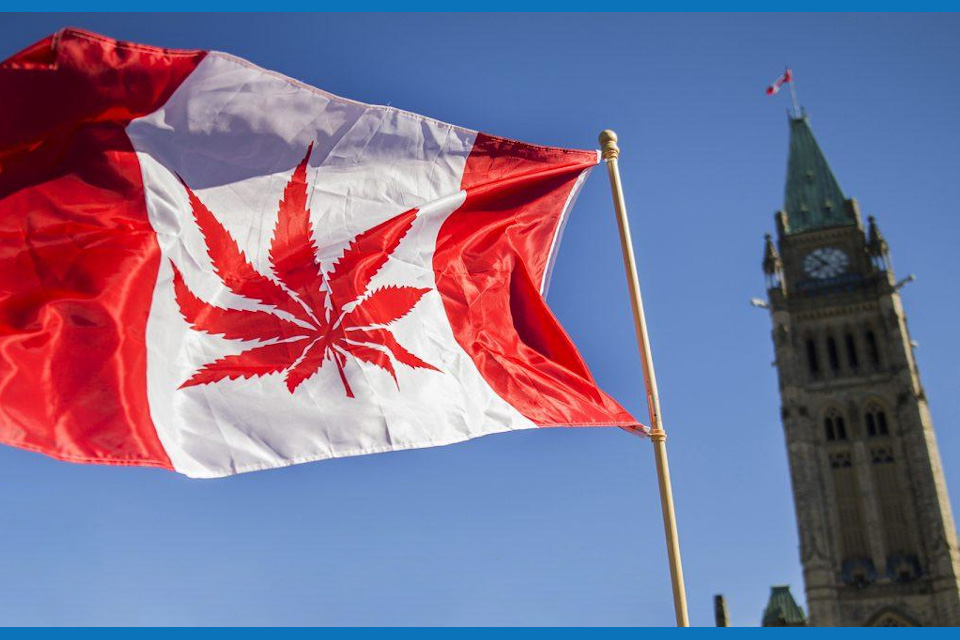Canada is one of the very few countries that have fully legalized cannabis. One might wonder what laws there might still be against cannabis in Canada. Is cannabis as legal as cigarettes and alcohol, or are there still a lot more restrictions? Any Canadian who recreationally or medically uses cannabis should be aware of where the legal lines are. While federal laws are lenient, local regulations can be more restrictive.
Is cannabis legal to smoke in public?
Believe it or not, it is legal to smoke cannabis publicly in many parts of the country. In some places, you can smoke cannabis almost anywhere you can legally smoke a cigarette. It is legal to smoke cannabis on the street in some provinces. Of course, one cannot smoke it in bars. Laws against smoking cigarettes in bars also apply to cannabis.
Local and provincial governments have the power to decide how legal cannabis is in their regions. For example, it is legal to smoke cannabis publicly in Alberta, but not in the city of Calgary. Only in the capital are there local laws against openly smoking cannabis.
Smoking cannabis in places where children are likely to be present is not allowed. This includes a beach or a sports game, even if one can legally smoke tobacco in that location. One also cannot smoke cannabis in vehicles. British Columbia and Alberta (outside of Calgary) have reasonably lenient public smoking laws.
In Ontario, even smoking in a park is fine, although one must be at least 20 meters away from a school or a children’s playground. Quebec is even more lenient than Ontario, and straightforwardly allows cannabis smoking anywhere that tobacco smoking is, but some cities have local restrictions. Other provinces are restrictive about public use and do not allow it on restaurant patios or sidewalks. Fines can sometimes be hundreds or thousands of dollars for smoking cannabis publicly where one cannot.
How much cannabis can one carry with them at a time?
The laws are reasonably lenient and allow one to carry up to 30 grams with them at a time anywhere in Canada for the time being. More restrictive local laws about how much one can carry have not yet appeared anywhere. One can possess at most 150 grams of cannabis legally.
Are all forms of cannabis legal?
Cannabis concentrates such as shatter or hashish are not yet legal to sell, though these extracts soon will be. It is permissible to possess concentrated forms of the substance, up to a maximum of 7.5 grams, even though they cannot be sold anywhere. Vaping cannabis is not allowed as the liquid cannot be legally sold, though one can possess it. Edibles are also legal to make and use but not sell. Very soon, legally sold edibles and extracts will appear in Canada, but this is not yet true.
Is it easy to find cannabis for sale?
In many parts of the country, the only easy way to buy it is by ordering it through the mail. Shops that legally sell cannabis are few to nonexistent in many cities. Some cities and provinces allow one to open a cannabis shop. Other provinces allow liquor stores to sell cannabis, so it is as easy to find as alcohol in many places. Ordering through the mail from a legal source is permitted everywhere in the country. Licenses for cannabis shops are being given out slowly, so only a few shops are open in some provinces.
Is it ever legal to smoke cannabis before work?
There are no specific laws against working while under the influence of cannabis. Employers may tolerate it, although they may be firmly against it. General laws against performing unsafe work while impaired by any legal or illegal substance make it illegal to smoke cannabis before work in many professions. Generally, employers do not and should not be able to drug test their employees; only if very safety-sensitive work is necessary, then employers can permit to test for this legal drug. Airplane pilots, for example, must pass cannabis tests.
Laws against driving while under the influence of cannabis exist everywhere. The police enforce these laws as strictly as laws against drinking and driving. cannabis tests are as easy for the police to perform as alcohol breathalyzer tests.
Are restrictions on cannabis going to change much in the future?
On the plus side, edibles will soon be legal to sell. On October 17th, laws against selling foods and drinks containing cannabis will disappear. It will, however, take another two months before shops begin selling edibles anywhere. While there is nothing dangerous about edibles, the argument that edibles would appeal to children delayed their legalization.
Federal laws against selling concentrated forms of cannabis will also come to an end on October 17th. Liquid for vaporizers will become legal, as will hashish. Oil and shatter will be just as legitimate.
On the downside, public smoking laws will become stricter in many parts of the country soon. Currently, Quebec has the most lenient provincial laws, but the laws will soon become much more restrictive. Legal cannabis may disappear from public spaces in many parts of the country over the next few years. Restaurants are not able serve edibles anywhere. It will also not be possible to sell products that combine cannabis with other legal drugs. There will be no alcoholic beverages that also contain cannabis and no vape liquids that include a mix of nicotine and THC.
What should be expected in 2020?
In 2020 and beyond, a greater diversity of legal cannabis products will appear, along with more cannabis businesses. Cannabis topicals such as skin lotions will also appear in 2020. The amount of THC that a lotion may legally contain will be limited, although these lotions will not have to be mild. Laws against public consumption are likely to become more strict and not more lenient in 2020 and beyond. However, there are not many people who complain about public cannabis use. Therefore, it may continue to be legal to use in public in many places long after 2020.
The law will continue to be lenient about growing a limited number of plants at home, including for recreational use. Previously Quebec had a law against growing plants, but it has been struck down, and it is now legal to grow plants in any province. The next decade will include a mix of more lenient and more restrictive cannabis regulation.


